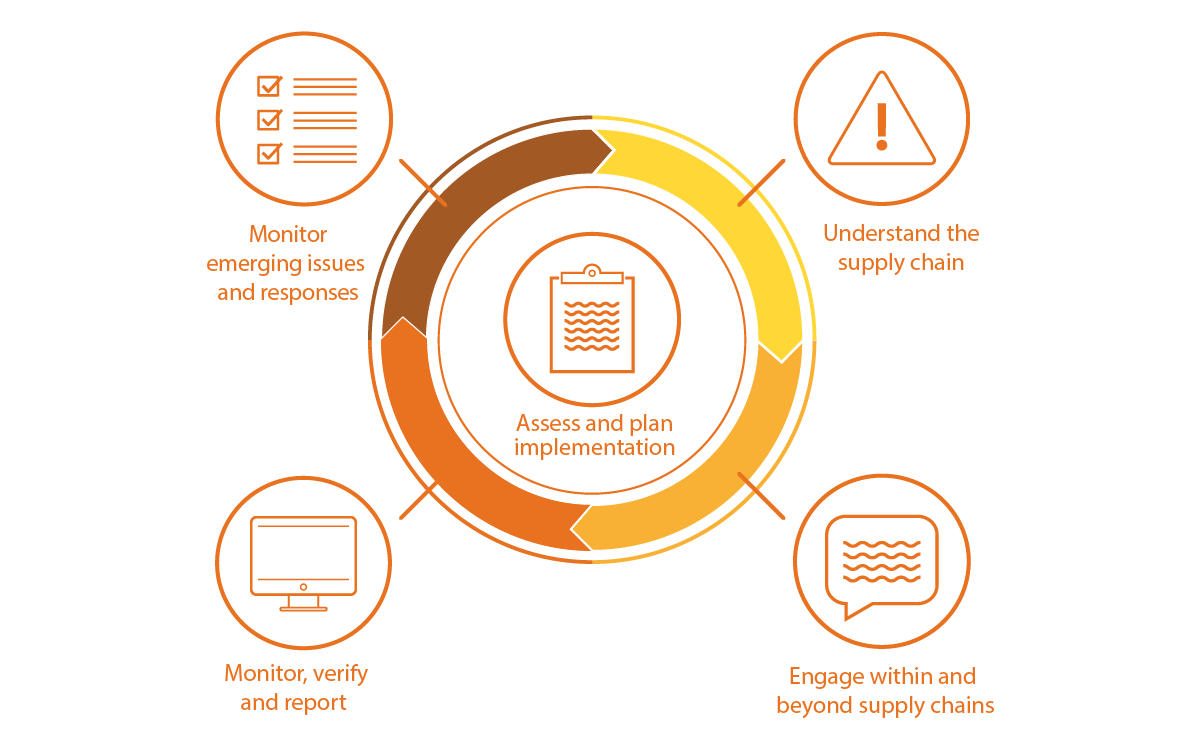The Palm Oil Toolkit is designed to support companies in implementing commitments on responsible sourcing of palm oil, by-products and derivatives. It is an accessible guide to the many initiatives that aim to address key environmental and social issues in the palm supply chain, namely deforestation, development on peat and human rights violations. All briefing notes are structured into a 5-element approach for responsible sourcing based on Proforest’s Agricultural Commodity Responsible Sourcing and Production (ACRES) approach. The current Palm Oil Toolkit focuses on palm oil from Southeast Asia but could be applied to other producing countries in Africa and Latin America with some variation of the issues happening on the ground.
Why responsible sourcing of palm oil is important
Increasing demand for palm oil has led to unsustainable production practices that have caused large-scale deforestation, biodiversity loss and violation of the rights of workers, local communities and indigenous people, with negative impacts to their livelihoods.
Palm oil companies are expected to develop responsible sourcing commitments and implement them throughout the supply chain by establishing a timebound action plan to improve production practices and ensure environmental and social safeguards.
The 5-Element Approach
The Palm Oil Toolkit is structured around each of the five key elements of the palm oil responsible sourcing process.
ELEMENT 1: ASSESS AND PLAN IMPLEMENTATION
Implementation plans consolidate your understanding of the strategy, steps, responsibilities and timeframes, allowing for monitoring progress and further reviews.
ELEMENT 2: UNDERSTAND THE SUPPLY CHAIN
Understand the palm oil supply chain by tracing to origin is crucial for companies to identify social and environmental risk in their supply chains and to put in place measures necessary to ensure compliance with their commitments.
LEARN MORE - element 2a - environmental and social risks
LEARN MORE - element 2b - traceability and risk analysis
ELEMENT 3: ENGAGE WITHIN AND BEYOND SUPPLY CHAINS
Companies should develop a strategy to address environmental and social issues within their own supply chain and beyond their supply chain, which then informs the level of engagement required with these suppliers through different approaches to achieve its policy commitments.
ELEMENT 4: MONITOR, VERIFY AND REPORT
It is important to monitor, verify and report your progress both internally and externally, not only to track progress and review goals and strategies, but also to make the process transparent.
ELEMENT 5: MONITOR EMERGING ISSUES AND RESPONSES
All companies should have some effective systems to address emerging issues and grievances raised in their supply chain and report transparently on the progress made so that those responsible for delivery identify and react to problems in a timely manner, as well as understand what progress is being made.
Our Partners
Access free training for your company, or online webinars
To register for free training on any of the elements of the Palm Oil Toolkit, or to access online webinars, please use the button below.



